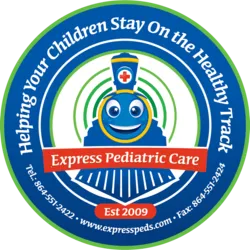Most people would think that confidentiality is a good idea, especially with respect to their own medical information. We wouldn’t want our information getting into the wrong hands. At Express Pediatric Care, we take confidentiality seriously. Because it is a good idea, and because it is the law. There is law called HIPAA that requires certain standards to be followed.
Everyone agrees with confidentiality, until it affects someone else, or it becomes inconvenient. When we are talking about the confidentiality of someone who is a child, there are a few complications. It is generally assumed that the parents of the child can have access to and knowledge of the child’s medical information. But what about grandparents, uncles and aunts, baby sitters, and brothers and sisters? Should those people have unlimited access to a child’s medical records? Even though some parents wouldn’t mind if grandparents knew what was going on with their grandchildren, with a few people, this is a problem. Parents have a right to control who knows what information about their child. For this reason, we provide all patients with a HIPAA consent form to complete, which allows them to list all the people who have access to their child’s information. The most common way that people other than parents know about the medical information about children, is by bringing them to the doctor’s office for a visit. When a child is brought for an appointment by a relative, the relative knows what medical issue went on at that visit. So, if that relative is not included on the HIPAA form as one of those people who are allowed to know, we have no way to tell whether a parent is okay with that or not. And we have to assume that a person not listed on the HIPAA form is not allowed access to the child’s information, so they cannot be present at their medical appointment. This is an example of when confidentiality becomes inconvenient, because there are many times that relatives are asked by parents to bring their child to the doctor’s office, but they are not on the list of people approved to know the child’s medical condition. Our office could be accused of violating HIPPA law with inappropriate release of medical information, because we allowed someone not on the list to bring a child to a medical appointment. This potential issue can be resolved by proper planning on the part of the parent: by filling out the HIPAA form, or by sending a signed letter with the child and relative giving them permission to bring the child.
Another major area of confidentiality confusion is the area of minor consent. A minor is any person under the age of 18 years old. In South Carolina, the law states that a minor 16 years or older can consent to any health services provided by a healthcare provider for themselves; consent of no other person is required, including the parent. This includes contraceptive care and counseling, sexually transmitted infection testing and treatment, outpatient mental health counseling and treatment, and all pregnancy related care services. A married minor is allowed to consent for their own care, and minor parents may consent to health care for their children. Information regarding the procedure or treatments can be given or withheld to the spouse, parent, custodian, or guardian by the minor/patient. These types of laws are put in place to encourage adolescents to talk about their health problems with providers, even if they are not able to openly discuss their problems with their parent or family. Teenagers are people with rights to confidentiality. Once a child reaches the age of 16, they will have the option to sign their own HIPAA form and include or exclude whom ever they choose. In most cases a child will voluntarily include their parent, but sometimes they forget; sometimes they don’t want to include them. When they are of legal age, our office has to respect their wishes. Parents can and should discuss this issue with their teen beforehand.
In the case of young children, both birth parents have equal right to access their child’s records. In cases of divorce or separation, we sometimes have one parent requesting that we keep information away from the other. We cannot do this, unless we have specific court documents stating this.
In all other cases where another party requests access to a child’s record, a signed release of medical information form is required. This may be in communication between our office and other doctor’s offices, schools, government agencies, and law offices. The exception to this is exchange of information between medical providers related to the management of a problem.
With the proper planning, we can ensure your child’s private records remain so, and still accomplish our medical goals.
Thank you for your cooperation and understanding regarding your child’s health and confidentiality!
Sincerely,
Express Pediatric Care, PA
Last Updated: July 27, 2017



